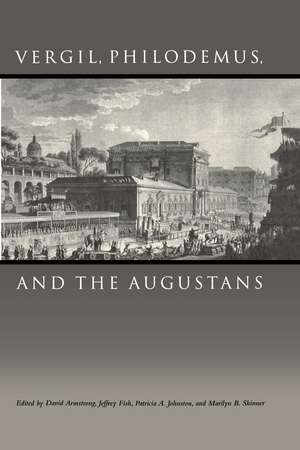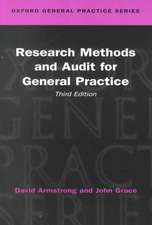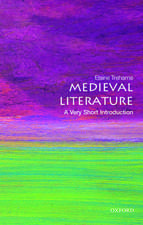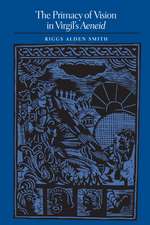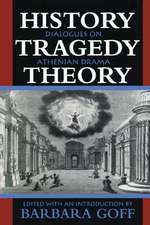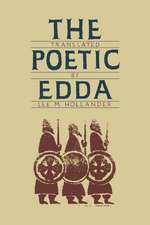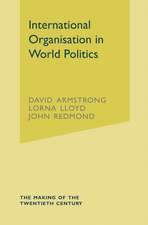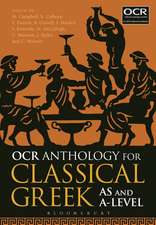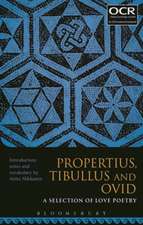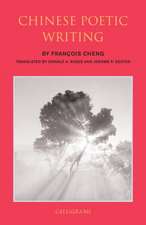Vergil, Philodemus, and the Augustans
Editat de David Armstrong, Jeffrey Fish, Patricia A. Johnston, Marilyn B. Skinneren Limba Engleză Paperback – 2004
The essays in this book, derived from papers presented at the First International Symposium on Philodemus, Vergil, and the Augustans held in 2000, offer a new baseline for understanding the effect of Philodemus and Epicureanism on both the thought and poetic practices of Vergil, Horace, and other Augustan writers. Sixteen leading scholars trace his influence on Vergil's early writings, the Eclogues and the Georgics, and on the Aeneid, as well as on the writings of Horace and others. The volume editors also provide a substantial introduction to Philodemus' philosophical ideas for all classicists seeking a fuller understanding of this pivotal figure.
Preț: 281.57 lei
Nou
Puncte Express: 422
Preț estimativ în valută:
53.88€ • 56.40$ • 44.84£
53.88€ • 56.40$ • 44.84£
Carte tipărită la comandă
Livrare economică 31 martie-14 aprilie
Preluare comenzi: 021 569.72.76
Specificații
ISBN-13: 9780292722118
ISBN-10: 0292722117
Pagini: 375
Dimensiuni: 152 x 229 x 24 mm
Greutate: 0.55 kg
Editura: University of Texas Press
Colecția University of Texas Press
Locul publicării:United States
ISBN-10: 0292722117
Pagini: 375
Dimensiuni: 152 x 229 x 24 mm
Greutate: 0.55 kg
Editura: University of Texas Press
Colecția University of Texas Press
Locul publicării:United States
Notă biografică
David Armstrong is Professor of Classics at the University of Texas at Austin.
Jeffrey Fish is Assistant Professor of Classics at Baylor University.
Patricia A. Johnston is Professor of Classics at Brandeis University in Massachusetts.
Marilyn B. Skinner is Professor of Classics at the University of Arizona, Tucson.
Jeffrey Fish is Assistant Professor of Classics at Baylor University.
Patricia A. Johnston is Professor of Classics at Brandeis University in Massachusetts.
Marilyn B. Skinner is Professor of Classics at the University of Arizona, Tucson.
Cuprins
- Acknowledgments
- Abbreviations
- Introduction (David Armstrong)
- I. Early Vergil
- 1. Vergil's Farewell to Education (Catalepton 5) and Epicurus' Letter to Pythocles (Diskin Clay)
- 2. Philosophy's Harbor (Francesca Longo Auricchio)
- 3. Vergil's Epicureanism in His Early Poems (Régine Chambert)
- II. Eclogues and Georgics
- 4. Consolation in the Bucolic Mode: The Epicurean Cadence of Vergil's First Eclogue (Gregson Davis)
- 5. A Secret Garden: Georgics 4.116-148 (W. R. Johnson)
- 6. Vergil in the Shadow of Vesuvius (Marcello Gigante)
- III. The Aeneid: The Emotions
- 7. The Vocabulary of Anger in Philodemus' De ira and Vergil's Aeneid (Giovanni Indelli)
- 8. Anger, Philodemus' Good King, and the Helen Episode of Aeneid 2.567-589: A New Proof of Authenticity from Herculaneum (Jeffrey Fish)
- 9. Philodemus: Avocatio and the Pathos of Distance in Lucretius and Vergil (Frederic M. Schroeder)
- IV. The Aeneid: Piety and the Gods
- 10. Piety in Vergil and Philodemus (Patricia A. Johnston)
- 11. Vergil's De pietate: From Ehoiae to Allegory in Vergil, Philodemus, and Ovid (Dirk Obbink)
- 12. Emotions and Immortality in Philodemus On the Gods 3 and the Aeneid (Michael Wigodsky)
- V. The Aeneid: Aesthetics
- 13. Carmen inane: Philodemus' Aesthetics and Vergil's Artistic Vision (Marilyn B. Skinner)
- 14. Vergil and Music, in Diogenes of Babylon and Philodemus (Daniel Delattre)
- VI. Other Augustan Poets
- 15. Horace's Epistles 1 and Philodemus (David Armstrong)
- 16. Varius and Vergil: Two Pupils of Philodemus in Propertius 2.34? (Francis Cairns)
- Bibliography
- Contributors
- Index
Recenzii
This is an outstanding collection. It is beautifully produced and provides a fascinating insight into one of the most promising and productive areas of current Vergilian scholarship.
Descriere
The essays in this book offer a new baseline for understanding the effect of Philodemus and Epicureanism on both the thought and poetic practices of Vergil, Horace, and other Augustan writers.
